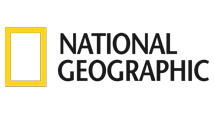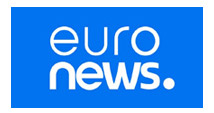Animal Welfare Policy
POLICIES AND PROCEDURES
Pod Volunteer is committed to ensuring that the animal projects that we work with offer the highest standards of animal welfare
When carried out correctly, we believe that volunteering has a positive impact on animals and wildlife conservation as a whole. Our policies and processes are in place to ensure the welfare of the animals that our volunteers work with, as well as the volunteers’ personal safety.
Before beginning a partnership, we visit and assess the project in order to be confident that the project is in line with our Animal Welfare policy, and we regularly revisit the project to ensure that this continues.
Central to our approach regarding animals in captivity are the five aspects of animal welfare under human control, known as the Five Freedoms:
Freedom from hunger or thirst
By ready access to fresh water and a diet to maintain full health and vigour
Freedom from discomfort
By providing an appropriate environment including shelter and a comfortable resting area
Freedom from pain, injury or disease
By prevention or rapid diagnosis and treatment
Freedom to express (most) normal behaviour
By providing sufficient space, proper facilities and company of the animal’s own kind
Freedom from fear and distress
By ensuring conditions and treatment which avoid mental suffering
We require all of our projects’ treatment of animals to be in line with these Five Freedoms. When choosing which projects we support with volunteers, we also assess all projects based on the following requirements:
- The project has clear long term goals and can demonstrate short term progress towards these goals
- There is a genuine and justifiable need for the animals to be there
- The project should have expert, experienced staff
- There is a genuine need for volunteers, whose role enables the project to achieve their goals
- There are appropriate safety measures and training in place to protect the animals, project staff and volunteers
- The project meets or exceeds local laws and standards regarding animal welfare practices, including having the relevant permits and registrations in place
- The animals’ welfare and potential for rehabilitation and release is not compromised by the presence of volunteers or tourism
- The project does not promote captive breeding without appropriate or justifiable needs
- The animals are not used for the purpose of entertainment
- The animals should be provided with enrichment where appropriate in order to encourage natural behaviour
- There is an appropriate hands off policy wherever possible so that animals do not become unnecessarily attached to humans
- We do not support big cat projects with the exception of rescued animals or where they are in a wild environment
- We do not support elephant projects where elephant riding for tourism takes place
Ultimately we believe that where possible, wildlife and wild animals belong in the wild, where they are in their natural environment and can display their natural behaviours. Many of our projects provide volunteers with the opportunity to experience this.
We do however also accept that there are some cases where this is not possible and the best alternative is animals being kept in a captive environment, as close to their natural habitat as possible. There are sanctuaries and rescue and rehabilitation centres around the world doing fantastic work. For example for elephants in Asia which have been rescued from working in the tourism or logging industries, it is not possible for them to be released to the wild due to habituation. This is equally true for many animals that have been orphaned, affected by habitat loss, illegally traded, injured or abused and kept as pets. The goal should always be rehabilitation and release where possible and the volunteer role should support this, but in cases where it would be unethical to release them, a sanctuary provides the best alternative for a good quality of life.
We also believe that continuous monitoring and feedback is essential both to ensuring that we are constantly improving our own knowledge of animal welfare and so that as projects develop, change and evolve, they remain in line with our ethical approach. We also monitor all feedback from volunteers. Whilst our aim is always be to work with a project to make improvements, where necessary, we also have an exit strategy which enables us to suspend or terminate working with a project if we no longer feel that volunteers are assisting in achieving the project’s long term goals or where we do not feel the project remains in line with our policies and ethical outlook.
Find out about our animal projects: https://www.podvolunteer.org/project-type/animals
References and further reading:
Five Freedoms: UK Farm Animal Welfare Council, 1979
ABTA Animal Welfare Guidelines https://c0e31a7ad92e875f8eaa-5facf23e658215b1771a91c2df41e9fe.ssl.cf3.rackcdn.com/publications/GWforAnimalsinTourism_web.pdf
Born Free Foundation http://www.bornfree.org.uk/







